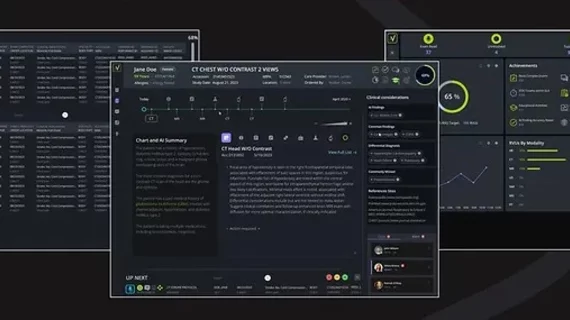NewVue launches AI-powered radiology command center
Tampa-based radiology company NewVue announces the launch of what it calls its “flagship product.”
The cloud-hosted EmpowerSuite is a PACS-integrated radiology dashboard that serves as a command center for all radiology operations in a healthcare organization. By gathering and organizing data from disparate systems, NewVue says the suite brings clinical data, workflow information, and peer learning all to one central location.
The company says the suite utilizes AI to balance radiology workloads and simplify clerical burdens by summarizing patient history and clinical data.
“Recognizing and rewarding radiologist achievements is paramount, especially because they often work in isolation from patients and peers,” Mike Moore, co-founder of NewVue said in a statement. “EmpowerSuite's innovative approach not only streamlines radiology workflow but also fosters motivation and peer recognition through personal performance metrics. The platform incorporates gamification elements to enhance job satisfaction, boost productivity and encourage collaboration.”
NewVue says the central control hub provides radiologists with an AI-generated clinical synopsis and a comprehensive chronological record, emphasizing pertinent medical interactions for each patient. It also showcases AI-generated clinical suggestions, recommended follow-up actions, and case citations.
Further, the platform includes a complete analytics package that continually monitors the real-time availability of radiologists and adapts as needed, NewVue explains.

